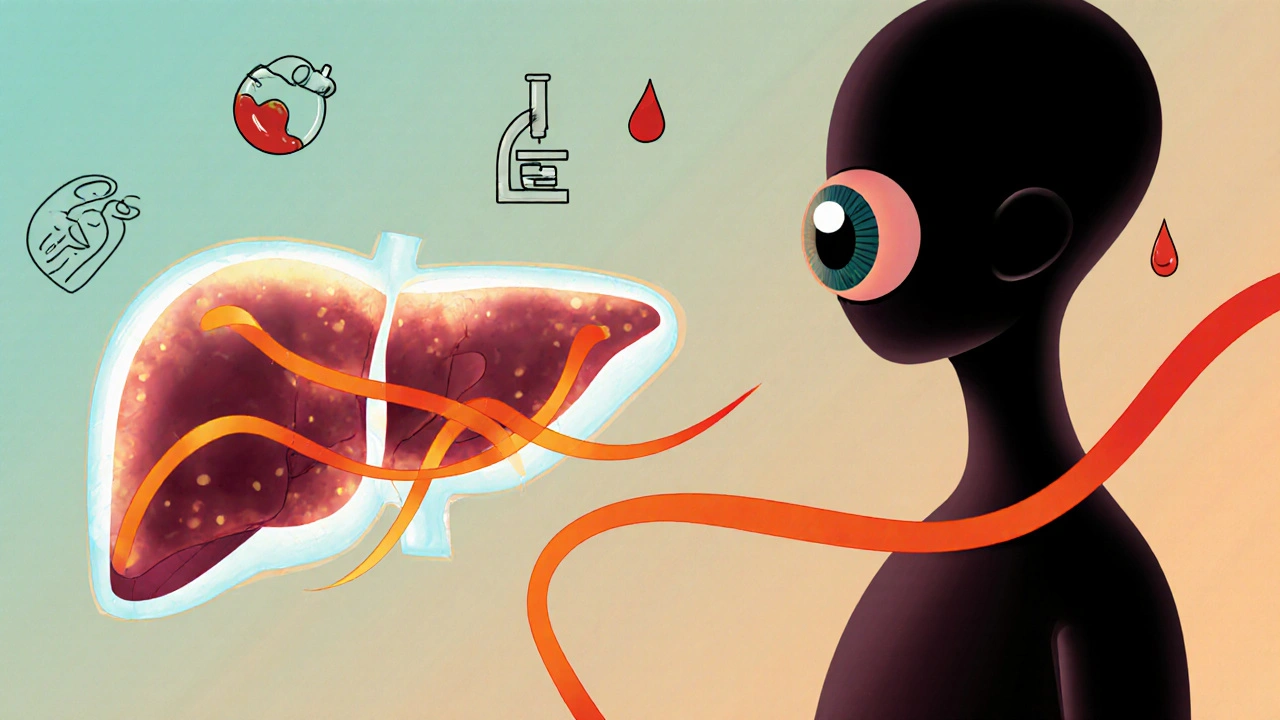Ocular Manifestations: What They Mean and How Medications Can Cause Them
When your eyes feel dry, red, or blurry for no clear reason, it might not be allergies or screen fatigue—it could be an ocular manifestation, a visible sign of an underlying condition or reaction, often triggered by medication. Also known as drug-induced eye symptoms, these changes don’t always show up in blood tests, but they’re real, common, and often ignored until they get worse. Think of your eyes as a warning system. If you’re on a pill for blood pressure, acne, depression, or even birth control, something in that medication might be quietly affecting your tear production, eye pressure, or nerve signals in your retina.
Many of the drugs listed in our posts—like Yasmin, Metoprolol, Clonidine, and even common NSAIDs like Diclofenac—have documented links to eye issues. Yasmin, for example, can cause dry eye syndrome because of its hormonal impact on tear glands. Metoprolol, a beta blocker used for high blood pressure, sometimes leads to blurred vision or reduced night vision. Clonidine, often prescribed for anxiety or hypertension, can cause dry eyes and even temporary pupil dilation. These aren’t rare side effects—they show up in clinical reports and patient forums again and again. And while some people brush off dry eyes as "just aging," others end up with corneal damage because the root cause wasn’t recognized.
It’s not just about discomfort. Ocular manifestations can be early signs of something more serious: increased intraocular pressure from long-term steroid use, retinal changes from antimalarials, or even optic nerve damage from certain antibiotics. The good news? Most of these changes are reversible if caught early. If you’ve noticed new eye symptoms after starting a new medication, write down the drug name, when you started it, and what exactly changed in your vision or eye comfort. That info could save you from permanent damage.
What you’ll find below isn’t just a list of articles—it’s a practical guide to spotting, understanding, and responding to eye-related side effects from common medications. Whether you’re on birth control, painkillers, antidepressants, or antibiotics, there’s a post here that connects the dots between what’s in your pill bottle and what’s happening in your eyes.
How Chronic Hepatitis C Affects Your Vision and Eye Health
Explore how chronic hepatitis C can damage vision, the eye conditions linked to it, and what you can do to protect your eye health.
More
